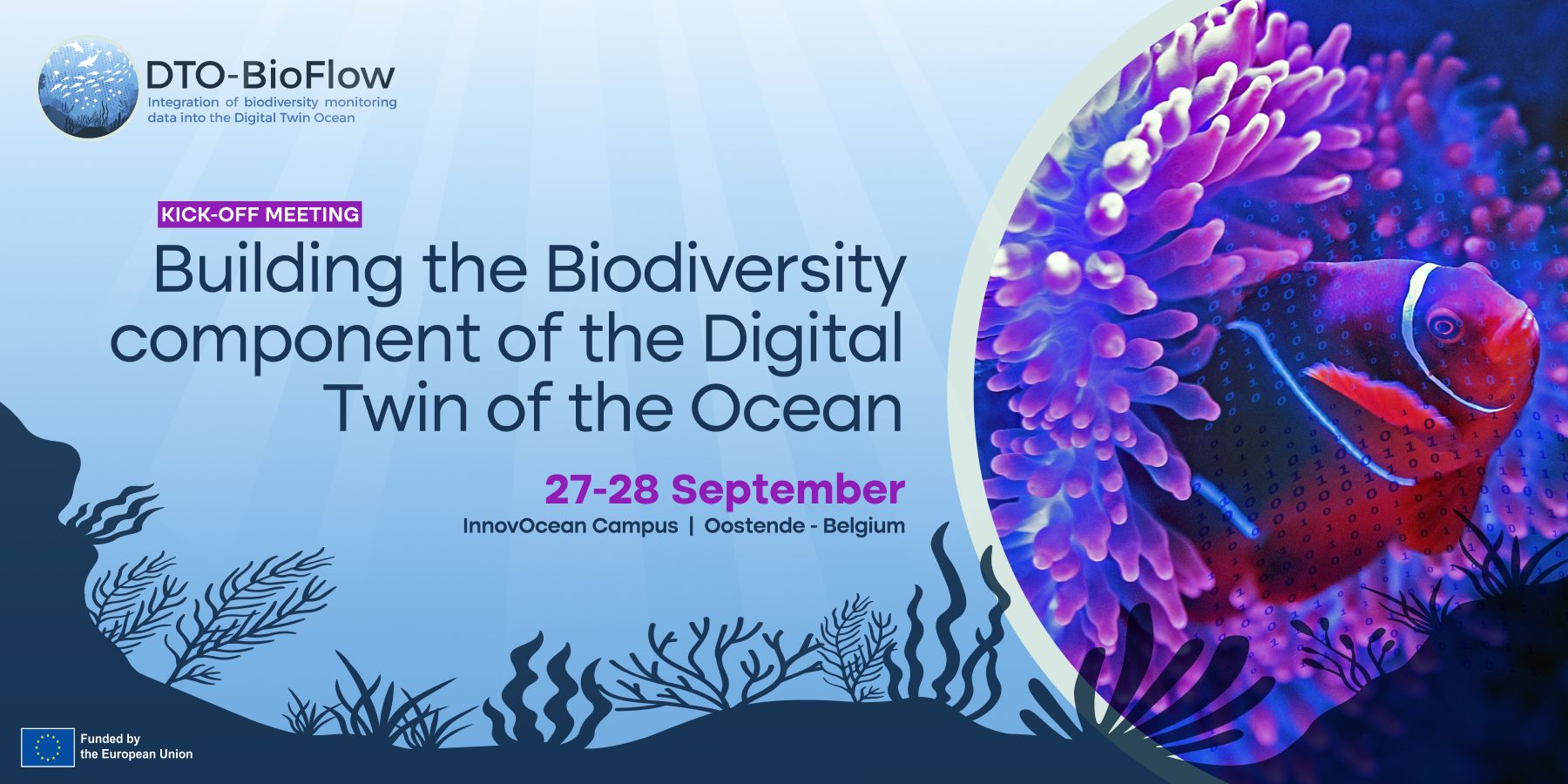
Restoring Europe's integrated system of oceans, seas, coastal, and inland waters is critical to meeting the European Union's Green Deal commitments. More precisely, the mission "Restore our oceans and waters by 2030" is consistent with the EU's Biodiversity Strategy and Nature Restoration Law, both of which advocate for the protection and restoration of land and sea regions. To do so effectively, a comprehensive biodiversity dataset is required, which not only assists policy creation but also aids in mitigating human impacts on the environment, particularly in Europe's most valuable asset: water.
Significant progress has already been achieved in gathering, harmonising, and making available marine biodiversity data through well-known efforts such as EMODnet, Copernicus Marine, MBON, OBIS, and GOOS. However, a significant amount of acquired data is "sleeping data," unavailable and underutilised.
In this context, the DTO-BioFlow project is a critical step towards protecting our valuable aquatic ecosystems: funded through the Horizon Europe Programme, this initiative aims to address current challenges in the collection, harmonisation, accessibility, and analysis of marine biodiversity data. It intends to incorporate these data and analytical tools into DTO structures, with a focus on their use in addressing policy-relevant use cases.
DTO-BioFlow project kicked off!
DTO-BioFlow project kicked off on September 27th in Ostend, Belgium. The meeting was hosted at the InnovOcean Campus and organised by the Flanders Marine Institute (VLIZ), the project's coordinator, host and technical manager of the European Marine Observation and Data Network (EMODnet) portal.
The Consortium is made up of 30 partners from 14 countries, including research, infrastructures (e.g., EMBRC, LifeWatch), networks (MBON), organisations (ICES), global aggregators and platforms (OBIS), and others. The consortium partners bring together biological monitoring infrastructures and experts, data managers, and DTO developers to ensure that DTO-BioFlow can implement and sustain the actions required to realise the project's ambitions, both during and after the project's lifetime, thereby supporting science-based, marine biodiversity-relevant policy development and implementation and enabling the Mission to meet its 2030 targets.